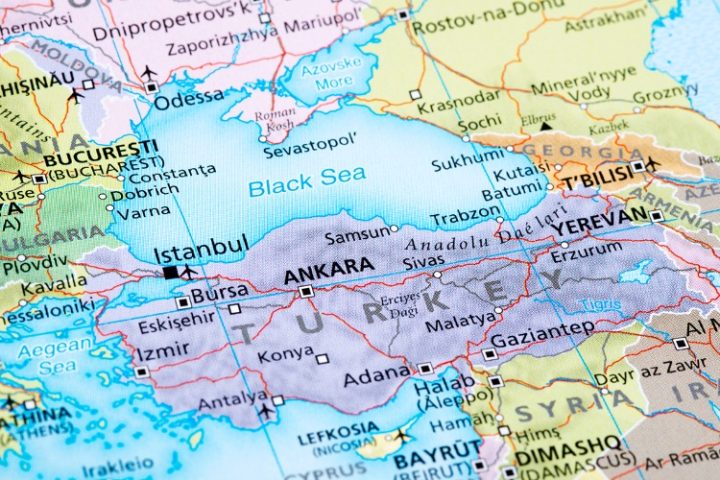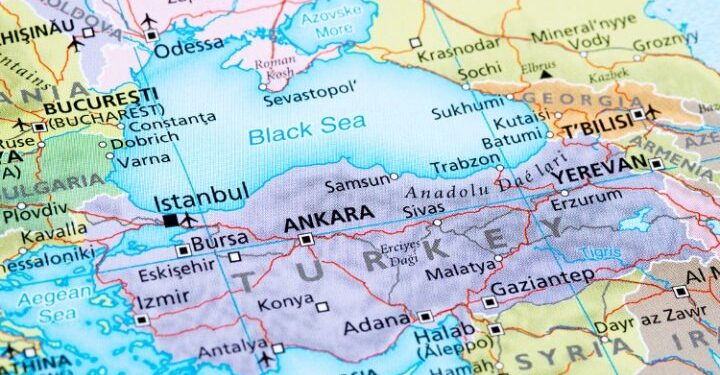
On April 16, news outlet Reuters reported, citing four sources acquainted with the matter, that although Ukraine and Russia had been in talks with Turkey for two months to guarantee the safety of shipping in the Black Sea, even reaching a deal that Ankara was poised to publish, Kyiv abruptly backed out of talks.
Notably, the official deal regarding the Black Sea trade route expired in July 2023, when Moscow refused to renew the original Black Sea Grain Initiative, contending that the United States and the EU had blocked exports of Russian food and fertilizer. At that time, Russia’s Foreign Ministry stated that none of its given conditions, such as resuming ammonia exports via a pipeline from Russia to the Ukrainian port of Odessa, were met by the West.
It was Turkey, after prompts from the UN, that mediated recent talks, as per the unnamed sources cited by Reuters. A tentative deal to “ensure the safety of merchant shipping in the Black Sea” was inked last month, these sources added.
Moreover, the sources maintained that even though Kyiv was not a formal signatory of the deal, Turkish leader Recep Tayyip Erdoğan was scheduled to disclose the agreement on March 30, prior to his country’s March 31 local elections.
Nonetheless, “at the very last minute, Ukraine suddenly pulled out and the deal was scuttled,” one of the sources admitted.
Thus far, it remains unclear as to why Ukraine backed out of the Black Sea deal, with Reuters’ sources also acknowledging their ignorance of Kyiv’s motivations.
Based on the draft viewed by Reuters, Ankara had mediated discussions between Moscow and Kyiv “on ensuring free and safe navigation of merchant vessels in the Black Sea,” while adhering to the Montreux Convention of the Regime of the Straits.
This aforementioned 1936 convention grants Turkey dominance over the Bosphorus and Dardanelles and the ability to regulate the transit of naval warships.
Furthermore, the agreement ensures the free passage of civilian vessels during peacetime and limits the passage of ships not hailing from Black Sea countries.
Strikingly, these safety assurances would not entail “warships, civilian vessels carrying military goods,” provided all parties agreed, the document draft read.
According to the deal that was nearly disclosed officially on March 30, both Moscow and Kyiv would have given security guarantees to merchant vessels in the Black Sea, committing not to attack or to confiscate or search them as long as they were either empty or had declared a non-military cargo.
“The Republic of Türkiye informs the UN Secretary General that the agreement has been reached and is being implemented through the mediation of the Republic of Türkiye,” the draft said. “The agreement comes into force upon announcement.”
When questioned on the Reuters reporting, UN Spokesman Stephane Dujarric replied, “We still hope that freedom of navigation in the Black Sea will prevail.”
In February, Ukrainian President Volodymyr Zelensky posited that his country would be unable to protect a Black Sea shipping corridor along its western Black Sea coast near Romania and Bulgaria without more American aid.
“We … created the new route in the Black Sea,” Zelensky told CNN in an interview at that time, boasting that the shipping corridor was a “big success,” as it thus far permitted the export of about 30 million tonnes of grain and other agricultural products, according to Reuters reports.
However, Zelensky cautioned that the failure of the U.S. Congress to authorize $60 billion in new security aid would jeopardize the future of the shipping corridor.
“I think the route will be closed … because to defend it, it’s also about some ammunition, some air defense, and some other systems,” Zelensky alleged.
On April 15, White House National Security Spokesman John Kirby told journalists that the United States will not shoot down Russian drones and missiles aimed at Ukraine, even though U.S. troops shielded Israel from an Iranian assault last weekend.
“Look: different conflicts, different airspace, different threat picture. And [President Joe Biden] has been clear from the beginning [of the Ukraine hostilities] that the U.S. is not going to be involved in that conflict in a combat role,” Kirby said.
Likewise, during an interview with LBC on April 15, British Foreign Secretary David Cameron acknowledged that putting NATO forces in a direct face-off with Russian troops would cause an increase in hostilities with Russia. Cameron stated,
I think the difficulty with what you suggest is if you want to avoid an escalation in terms of a wider European war, I think the one thing you do need to avoid is NATO troops directly engaging Russian troops. That would be a danger of escalation.
Cameron added that the way forward was to supply financial aid to Kyiv, “Do everything you can to support Ukraine, in terms of money, in terms of diplomacy and, crucially, in terms of weapons. Giving them weapons to defend themselves, training their troops, those things are absolutely the right thing to do.”
News outlet Politico mused on America’s motivations for defending Israel directly, and not Ukraine.
Washington might not believe a wider war will break out if it defends Israel against Iran, while the U.S. does believe it will get dragged into war with Russia if it directly helps Ukraine. Also, Russia has nukes and threatens to use them against the West, while Iran does not.
In a post on X, Zelensky attempted to urge Kyiv’s Western backers to defend Ukraine as they shielded Israel from Iran’s attacks over the past weekend:
During the course of the Russia-Ukrainian conflict which erupted in February 2022, Kyiv has called for its Western supporters to shield it from Russian airstrikes, even suggesting the creation of a NATO-enforced no-fly zone over Ukraine. On its end, Moscow has constantly cautioned that it would regard such efforts by any Western or NATO-linked parties as a direct interference in its conflict with Kyiv.

































 Reaction & Commentary
Reaction & Commentary














